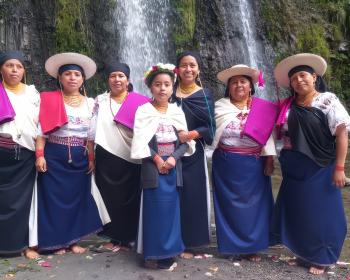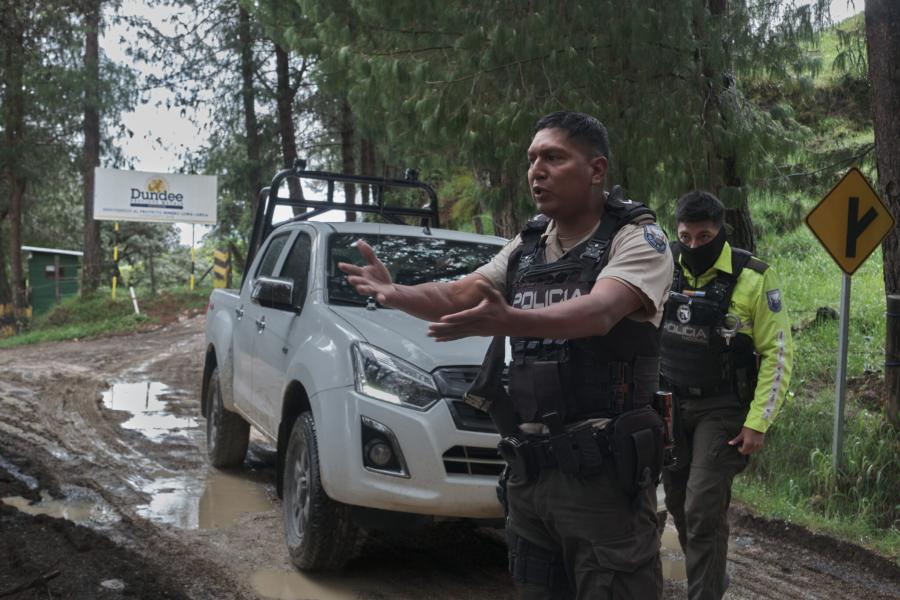By Organización Comuna Amazónica
The aggressive advance of mining extractivism in Ecuador threatens the entire country. In our province, Napo, we are experiencing one of the most serious environmental disasters in our history, caused by the complicity of mining companies, illegal mining operators, and the government, who have formed a network of corruption that is poisoning our water sources and bleeding the jungle, affecting our economy and putting our health at risk.
Despite the advance of the mining industry, the people have not retreated. On the contrary, we have organized ourselves into groups of Indigenous guards, or territorial defense fronts. This is how Organización Comuna Amazónica was born, from the need to organize ourselves in the face of new threats and according to the needs of the people, in unity and defense of our territories.
Little by little we have been learning, training, and forging our path, learning how the system works. We have learned, for example, that Ecuador is one of the signatory countries of the Minamata Convention on Mercury, which aims to protect human health and the environment from anthropogenic emissions and releases of mercury. Yet, the governments in power have continued to allow an unprecedented expansion of legal and illegal mining activity, granting massive concessions in our territories without Free, Prior and Informed Consent of Indigenous Peoples. Additionally, there is a mafia alliance between illegal miners and extractive companies who issue mining “sub-concessions” for gold extraction with no accountability to the State. This phenomenon has led to the illegal emission of mercury on the banks of our rivers, causing pollution and catastrophic diseases.
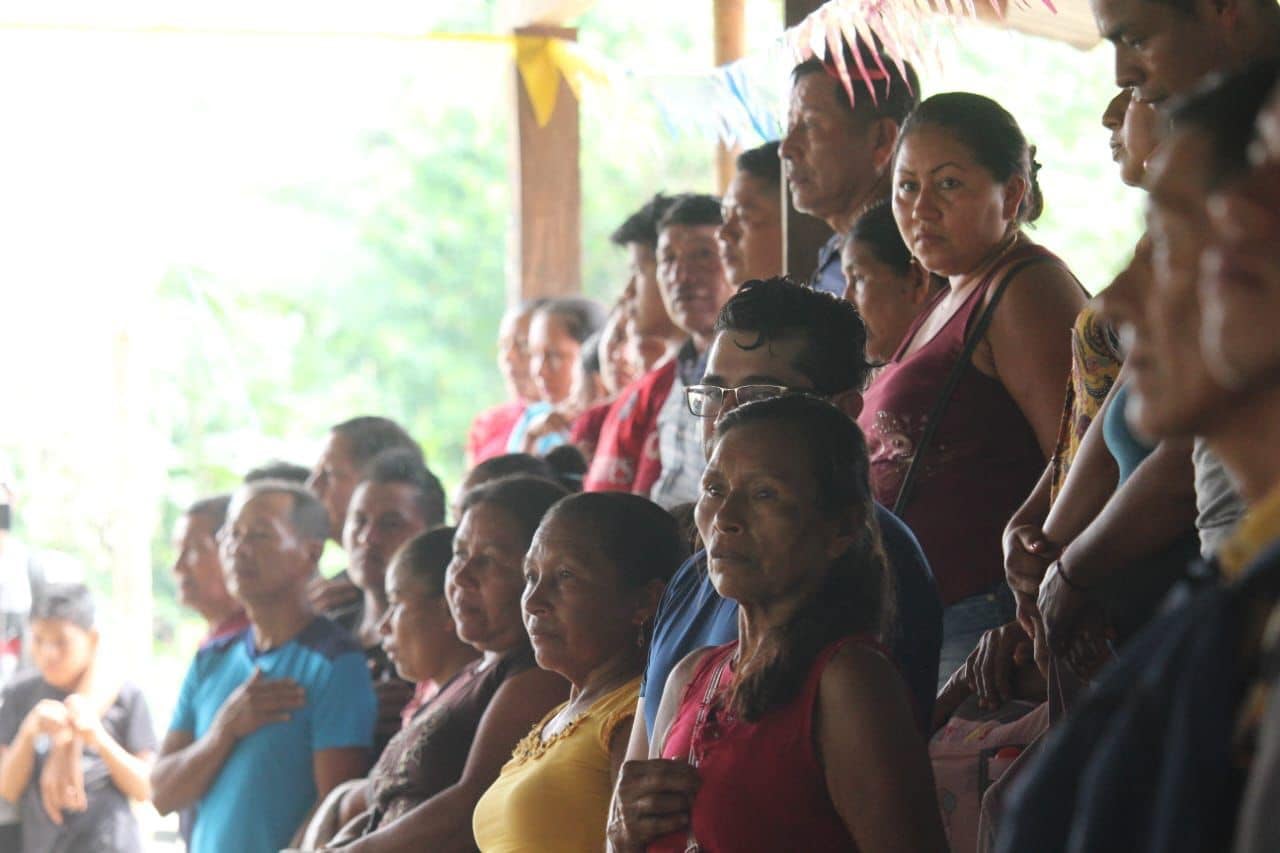
In Napo, through 2022, there were 226 registered concessions dedicated to metal mining comprising a total of almost 33,000 hectares, with 65 concessions in process comprising an additional 6,758 hectares. In this context, we decided to strengthen one of the territories that has fought tirelessly in the recovery and defense of its land and has become a beacon at the regional level: the community of Tzawata Ila Chukapi, located in the Carlos Julio Arrosemena Tola district. For two decades, the community has fought against an extractive company that has changed its name numerous times. A first phase of extractive activities in this territory left devastating consequences on the local environment. But the community’s continuous habitation there, despite not having a formal title to the land, has allowed for the gradual recovery and regeneration of the affected areas.
As the Amazonian Commune Youth Organization, we have supported the Tzawata Ila Chukapi community for several years. We are witnesses of the determination and resolve of their fight for the recovery of their ancestral lands, which were usurped at the beginning of the 20th century when Carlos Sevilla, a landowner from Nuevo Rocafuerte, arrived in the area and forcibly took possession of these lands, calling himself patron of their inhabitants. According to stories from the Elders of Tzawata, the “patron Sevilla” arrived to exploit the people by making them do forced labor to clear the forest and pan for gold.
Despite the exploitation and inhumane treatment, the community never abandoned its territory. However, after Sevilla, new bosses arrived—this time as managers of mining companies who intended to dispossess them again, even hiring people of dubious origin to attack and intimidate the population. But, they have not succeeded, because the community’s link with the territory is stronger than all transnational capital.
The lands changed hands until the arrival of Terraturismo S.A., which, while it has the deeds to the community’s land, could never purchase its ancestral possession. Today, the community is engaged in a legal battle against the State of Ecuador, demanding that the deeds of the territory be returned to their legitimate owners. The people of Tzawata Ila Chukapi are not “concessionaires;” they are an Indigenous Peoples. A third hearing in the process of the recovery of their territory is pending in the Constitutional Court.
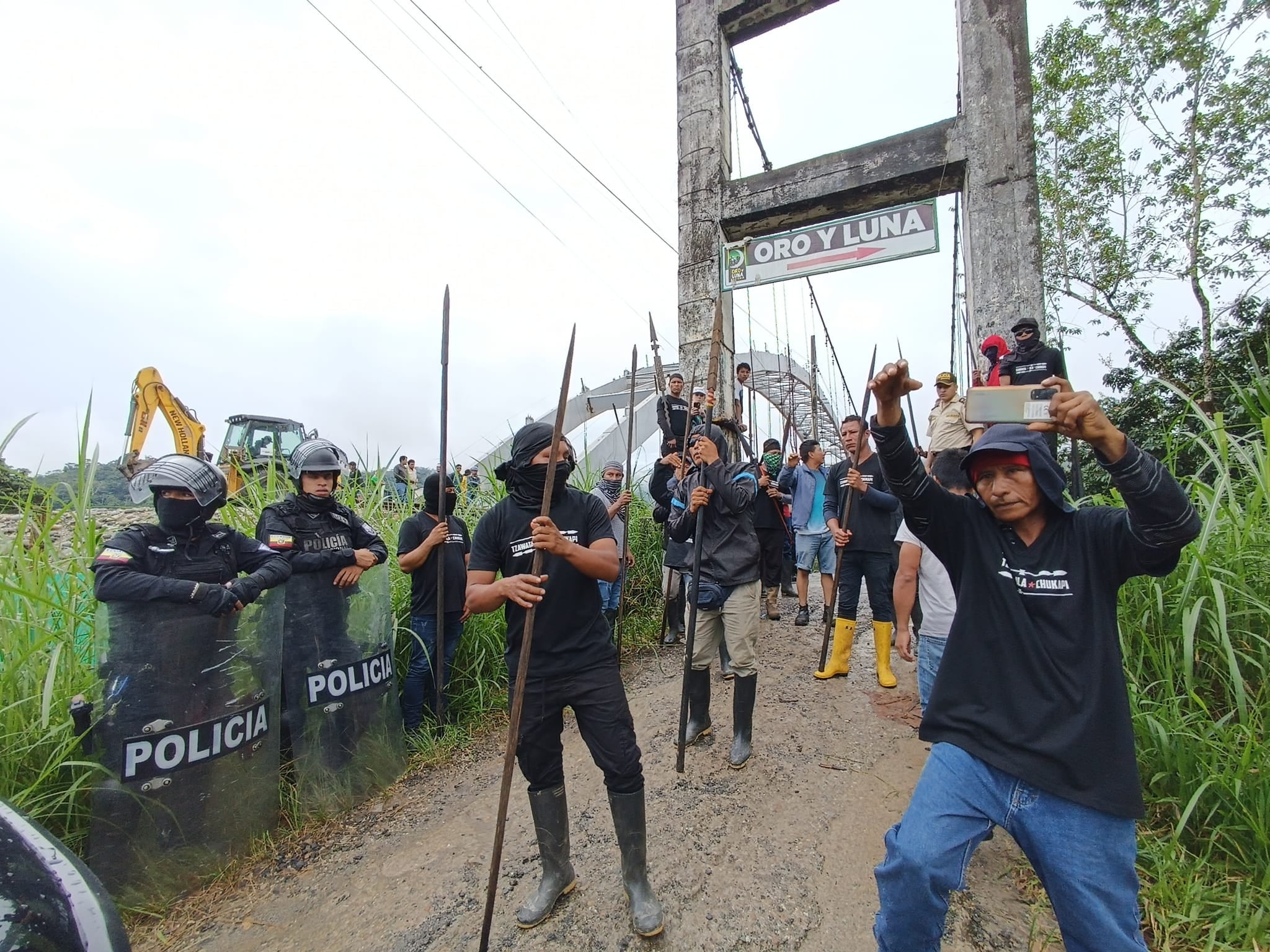
Despite a lack of resources and the onerous distance from the community to the courts, the community has not missed a single hearing. Organization and self-management have been key. At the hearings, most of the community waits outside, sometimes under the intense Napo sun, sometimes in the rain, always facing the judging gaze of public officials who do not know their history of struggle. All of these adversities give them the strength to remain firm in the face of State obliviousness.
In April, we were present when the judge presiding over the case carried out a judicial inspection to determine whether or not the community is ‘ancestral.’ During his visit, the judge was escorted by 80 police officers from the National Police, who entered the territory fully armed. The judge stayed for only a few hours and refused to see the ancestral places, arguing that this was the work of an expert. Weeks later we read his ruling in favor of the private company.
Even though the rulings in the first and second hearings were unfavorable for Tzawata Ila Chukapi, the community appealed and went to the Constitutional Court to demand Indigenous Peoples’ greatest right, which is the right to territory. Regardless of the outcome of the next hearing, the community is certain that justice will be done, whether with a judge or through struggle and the legitimate right to self-defense.
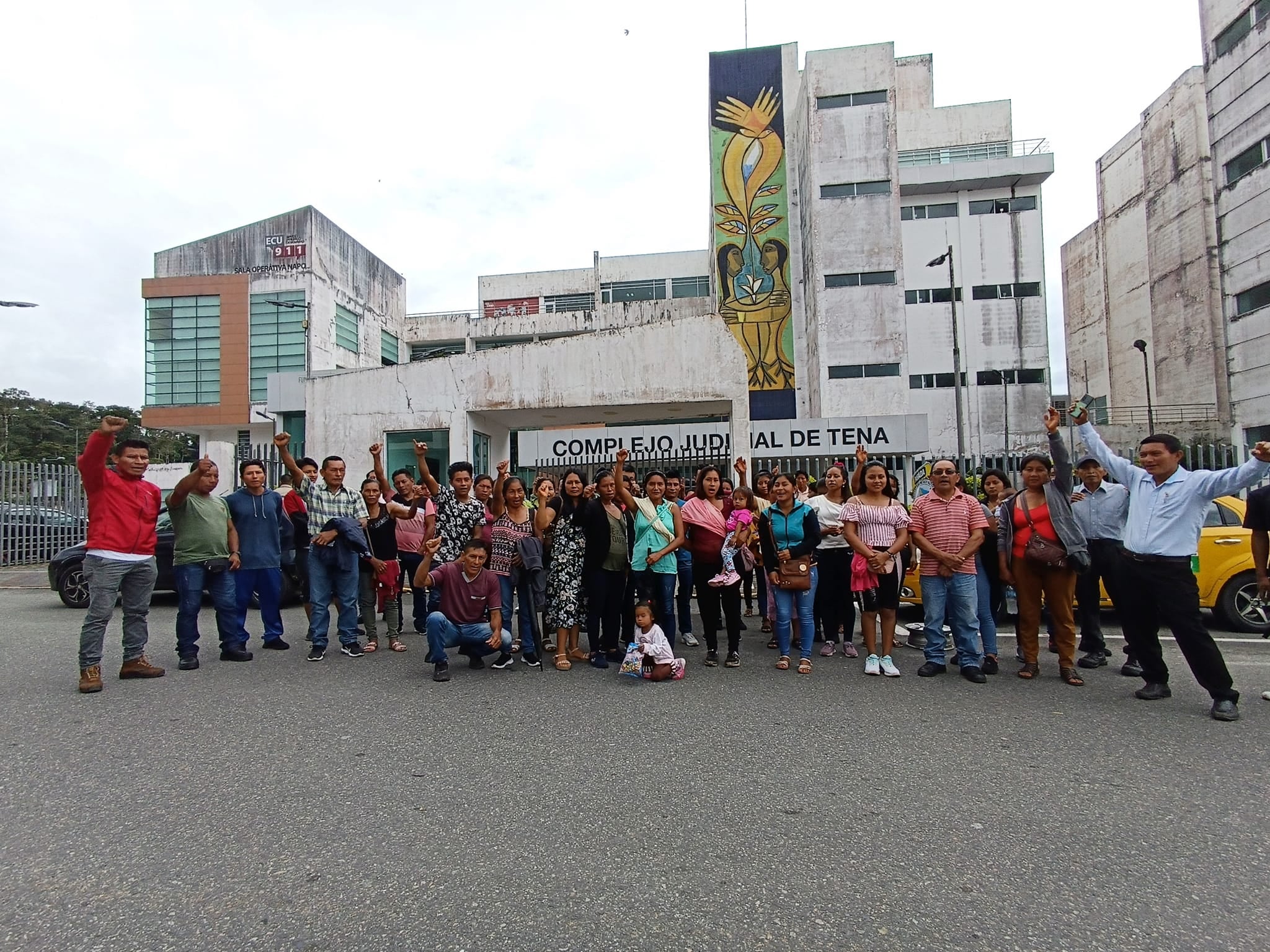
Just like Tzawata Ila Chukapi, dozens of Amazonian communities face the violent dispossession of our territories. Our response has been the organization of resistance movements. Through the training project for Indigenous guards and the campaign to defend our territory against the advance of mining in Napo, we have managed to strengthen our resistance.
The Indigenous guard of Tzawata Ila Chukapi is made up of youth and adults, women and men, who protect their community’s security and integrity like a shield, with territorial defense as the spearhead. They are on the frontlines without weapons. These defenders are not motivated by money, but by conviction and love for their communities. Today there is a powerful group of community communicators who are exercising their right to communication, documenting and making people aware of what is occurring in the region. Through community communication workshops, we collectively created radio content to make the world aware of the struggle of Tzawata Ila Chukapi and other communities of Napo, a province where the fundamental struggle is for life.
During our time spent with the communities, we have heard magical stories and vital testimonies from the wisdom of grandmothers and grandfathers shared around the fire: “We are not fighting for a territory where we can spend our last days. We are fighting for a territory where our children and grandchildren can lead a peaceful life and put ancestral knowledge into practice, respecting and loving our Allpa Mama.”
As part of a generation of young people who face uprooting and who belong to a Kichwa community where colonization was stronger than our roots, I feel infinite gratitude to see and hear that our customs, rituals, songs, and dances are still alive. Witnessing this collective struggle that transcends time and borders, where the good of the community prevails over the good of the individual, makes me feel that I am once again part of a community, even without having been born there. We will continue fighting in the defense of our lands, in the defense of Abya Yala.
In 2021, Organización Comuna Amazónica received a grant from the Keepers of the Earth Fund to organize a course for young people to build leadership, organizational, and management skills, and to promote land defense and cultural pride. The course benefitted youth from different Indigenous nationalities from the Ecuadorian Amazon, with recognition from Confederación de Nacionalidades Indígenas del Ecuador, Confederación de Nacionalidades Indígenas de la Amazonia Ecuatoriana, and Organización Comuna Amazónica. Keepers of the Earth Fund (KOEF) is an Indigenous-led fund within Cultural Survival that is designed to support Indigenous Peoples’ community advocacy and development projects. Since 2017, KOEF has funded 310 projects in 41 countries through small grants totaling $1,603,307, as well as technical assistance that has benefited 328 Indigenous Peoples in total.
